Brown Magic’s bold plan to reinvent Bangladesh’s magic scene

When Farhanul Islam casually corrected someone's comment from "black magic" to "brown magic" on Facebook, he was not expecting it to define the rest of his career. But it got stuck and became more than a name. It became a brand, a persona, and a challenge to perceptions, especially in a country where magic is still often viewed as stage gimmickry or childhood fantasy.
Today, Islam – aka Brown Magic – is one of Bangladesh's few contemporary mentalists blending psychology and body language into a form of immersive illusion that feels closer to a psychological experiment than a theatrical performance.
"I don't like people saying 'wow,'" he says. His magic is designed to interrupt, disorient, and most importantly, make you feel.
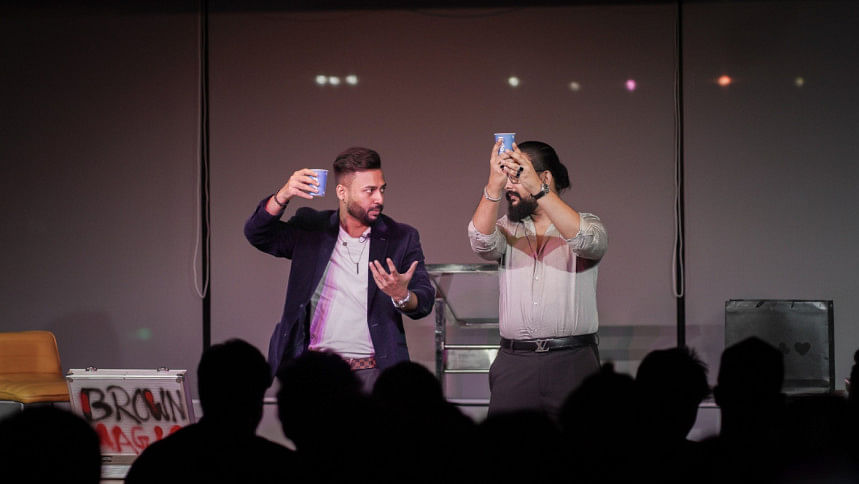
Origins: From card tricks to cognitive play
Islam's first creative outlet was music. However, when guitar lessons did not quite resonate, a televised David Blaine special changed the course of his life.
"He was using coins and cards. That made sense to me – portable magic," he recalls.
As a teenager, he carried cheap playing cards to local weddings, using them to impress friends.
"Everyone in Bangladesh plays cards. So, when I did tricks, they'd try to figure them out. That taught me how to design magic that is not just clever, but unpredictable."
After moving to Canada, he quickly immersed himself in the university scene, landing his own magic series on student television. But it was not until people began mistaking his name for "black magic" in online comments that "Brown Magic" emerged.
The name, though tongue-in-cheek, now anchors a career spanning over two decades.
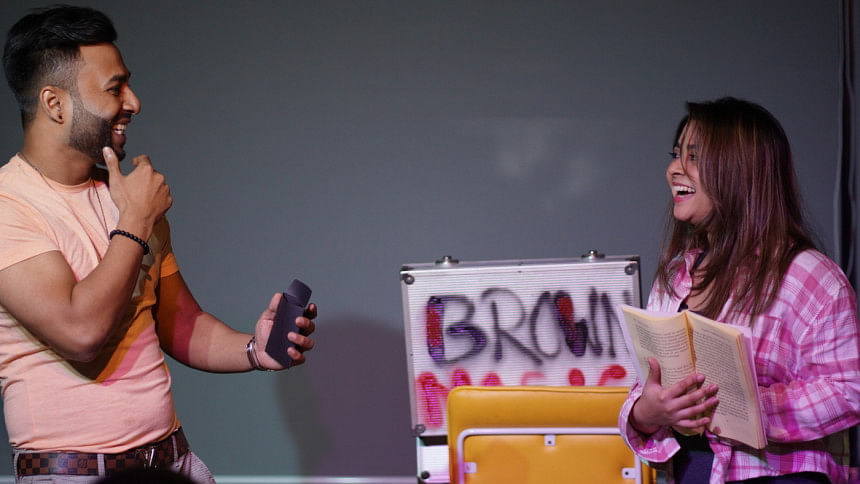
Mentalism: Where magic gets personal
Islam's transition from sleight-of-hand to mentalism was not a pivot but an evolution.
"Street magic impresses. Mentalism connects," he explains. The form, which draws on subtle psychological cues to reveal thoughts or memories, allows him to break through people's defences.
"You touch on a memory no one else knows, and suddenly, the wall is down. They're not just watching a show – they're in it."
His signature event, The Brown Magic Experience: The Mentalist, being held at the KIB Auditorium on 18 July 2025, is less about illusion and more about emotional immersion. "You're not just seeing the emotion! You're feeling it," he explains. "Mentalism can do that in ways no other magic form can."
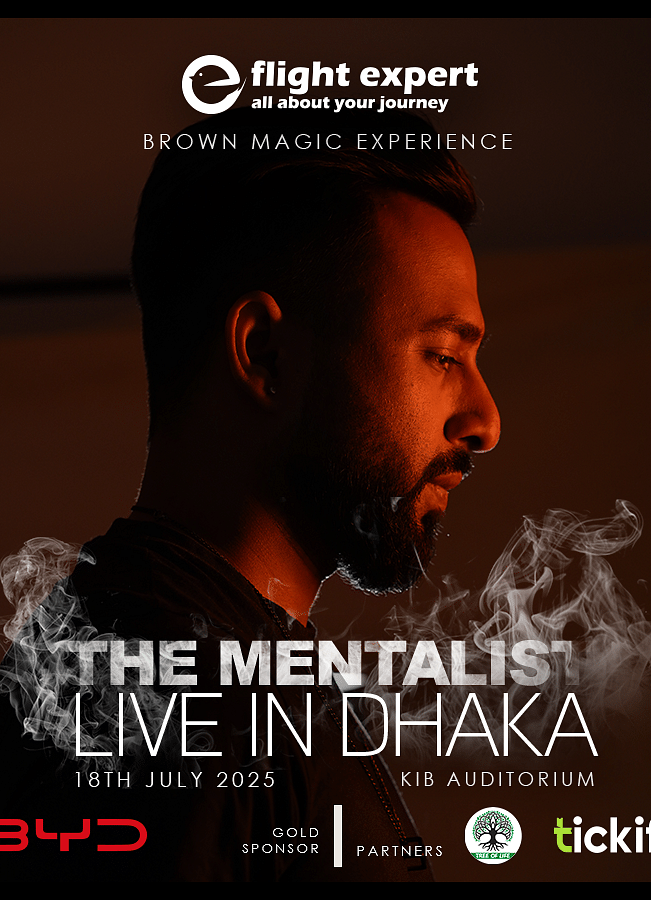
Reinventing the stage in Bangladesh
Back in Bangladesh after over a decade abroad, Islam finds himself in unfamiliar territory.
"People here still associate magic with clowns, flowers, or pulling rabbits out of hats," he says. "Not their fault. Most magicians didn't have the opportunity to push the form forward." Now he's trying to change that narrative with a Netflix-style magic series set to air soon.
But the reception has been mixed.
"We're still creating the market here," he says. "People are curious, but they're not sure if it's real or fake. That scepticism is healthy, but it also shows how disconnected we are from contemporary magic."
Even so, his performances in Bangladesh are steadily gaining traction. From high-profile appearances on Ityadi to introducing magic at cricket stadiums during BPL matches, Islam is embedding Brown Magic into the country's mainstream cultural psyche.
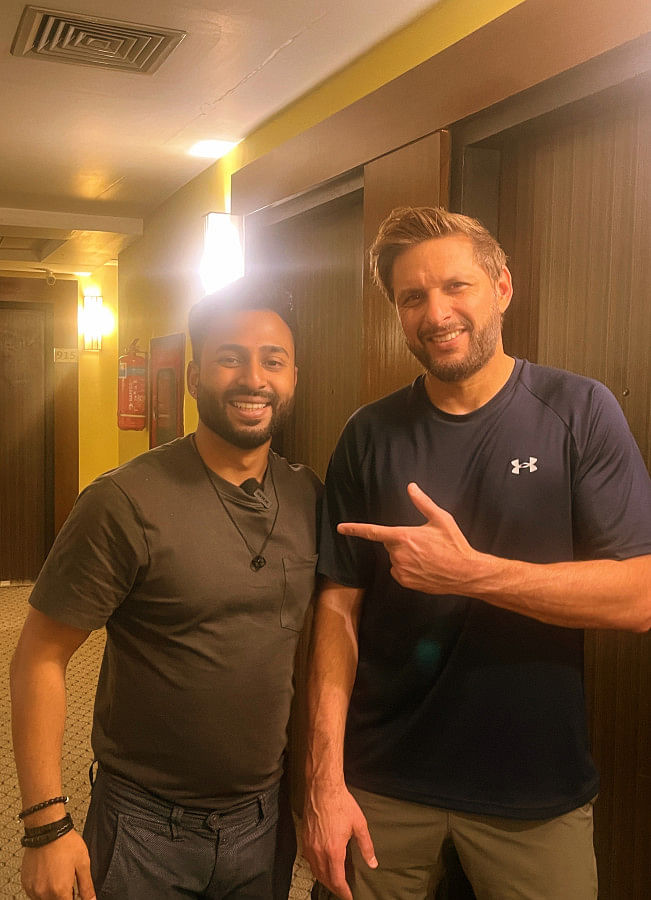
Global stage, local roots
His international resume is impressive: Burning Man, Flying Circus, and the holy grail of music festivals — Tomorrowland. The Tomorrowland booking was a fluke of fate.
"I was just warming up backstage at a gig in Mexico, showed a trick to someone, and they turned out to be the organisers. They booked me on the spot. I cried for six hours afterwards. That adrenaline, that emotion – you can't script that."
Despite the global stage, Islam feels a moral responsibility to his country. "I'm a Bangladeshi, born and raised. I've seen how underfunded, misunderstood, and underappreciated this art form is here. If I can raise the bar, I have to."

Beyond the magic
Islam isn't just a performer — he's an educator and philanthropist. He once ran a crash course company in Canada, teaching thousands of university students in business courses. He also spearheaded the $1 Initiative, a charity that raised over $60,000 for causes ranging from cancer treatment to menstrual health in rural Bangladesh.
He reflects on this work with deep emotion. "Empathy is a form of wealth people don't talk about enough," he says. "Richness is having life inside you, not just in your wallet."
The legacy plan
For the next five years, Islam's goal is clear: elevate magic in Bangladesh. Not to be remembered, but to create infrastructure for those who come next.
"I want a kid in Rangpur to be able to say, 'I want to be a mentalist,' and have that dream mean something," he says. "They don't have to remember me – just that someone made it possible."
Even as he plans more international performances, he sees Bangladesh as the foundation of his legacy. "Brown Magic is a character I built over 14 years. It's not something you can teach – it has to become you."
But he does mentor young magicians, helping them shape their performance from a simple "wow" to something unforgettable. "Magic isn't in the trick – it's in the experience," he says.
And with that, Brown Magic continues.
Photo: Courtesy

 For all latest news, follow The Daily Star's Google News channel.
For all latest news, follow The Daily Star's Google News channel. 





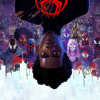

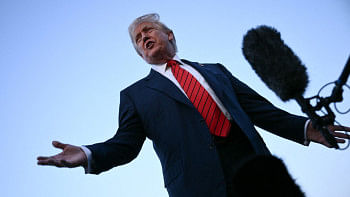
Comments